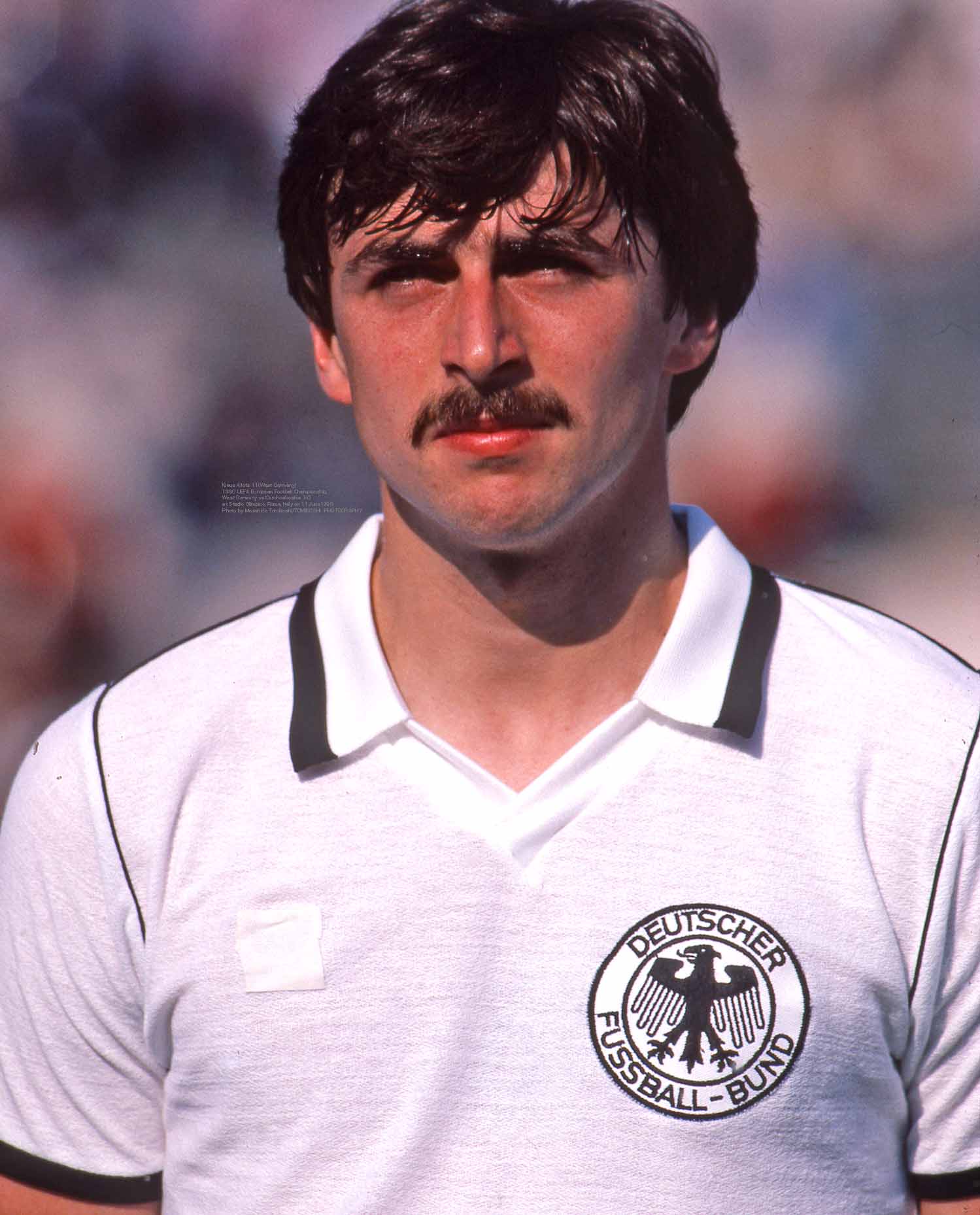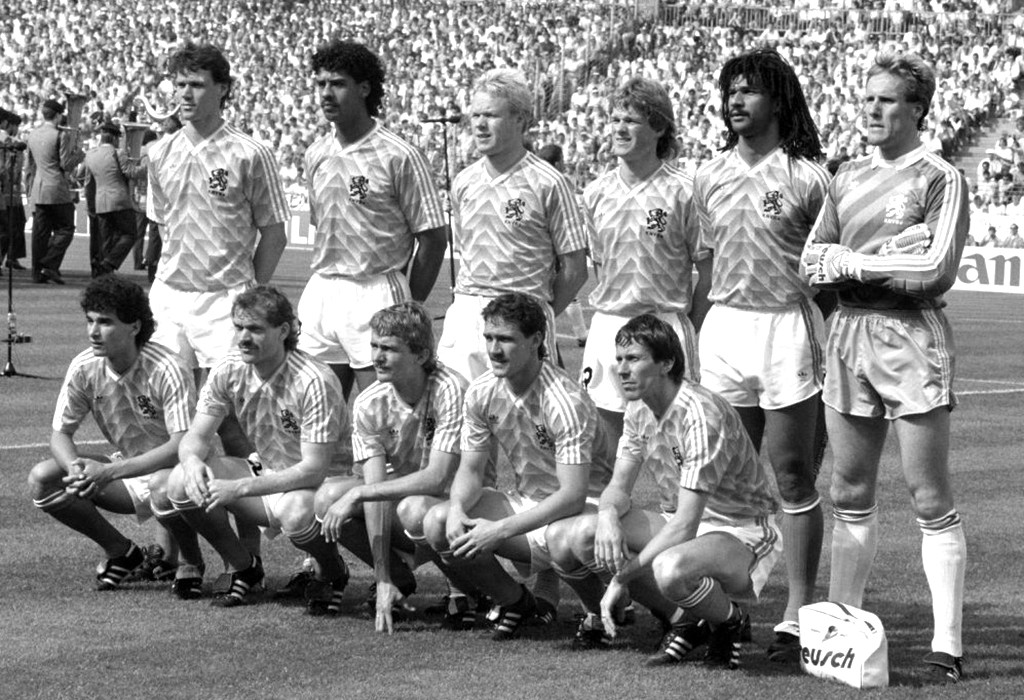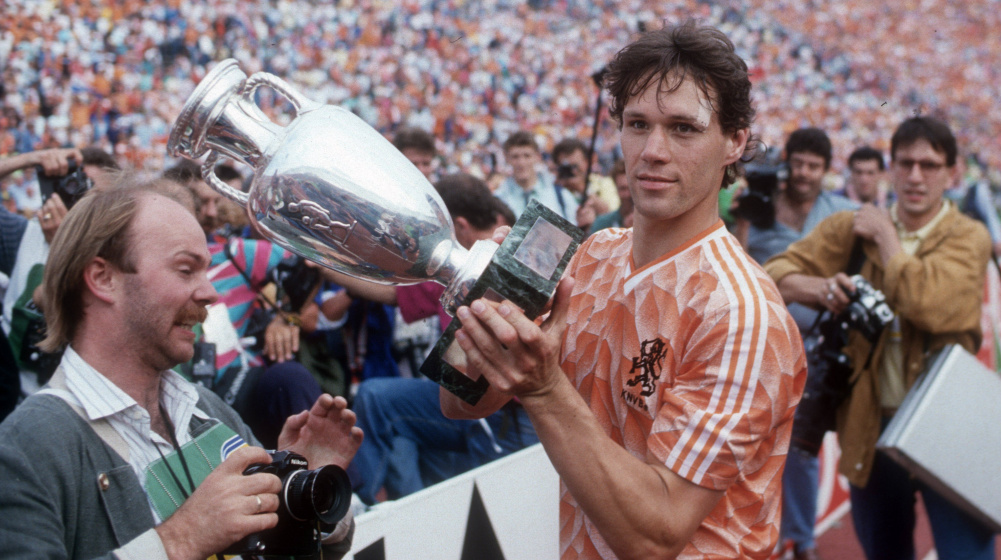EURO 1980 1984 1988 (1)
Hello, today we are starting our new article series. After the World Cup, the EURO series is next. Thank you very much for the nice comments on our World Cup series, we are starting.
EURO 1980

ITALY
The 1980 UEFA European Football Championship, commonly known as Euro 1980, was the sixth edition of the UEFA European Championship, a quadrennial football competition for European national teams. The tournament took place in Italy from June 11 to June 22, 1980.
Here is some detailed information about Euro 1980:
Format: The tournament format was expanded from the previous editions. Eight teams participated, divided into two groups of four. The teams played each other once in a round-robin format within their groups, with the top two teams from each group advancing to the final stage. The winners of the two groups played in the final, while the runners-up contested the third-place match.
Participating teams: The eight teams that qualified for the final tournament were Belgium, Czechoslovakia, England, Greece, Italy, Netherlands, Spain, and West Germany.
Venues: Four stadiums in Italy hosted the matches: Stadio Olimpico in Rome, Stadio San Paolo in Naples, Stadio Comunale in Turin, and Stadio Artemio Franchi in Florence.
Group 1:
The teams in Group 1 were Belgium, England, Italy, and Spain.
- Belgium: They had a strong performance, winning two matches and drawing one, ending the group stage with five points.
- England: England struggled in the tournament, failing to win a match. They drew two matches and lost one, ending with two points.
- Italy: The hosts had a mixed performance. They won one match, drew one, and lost one, ending with three points.
- Spain: Spain also had a mixed performance. They won one match, drew one, and lost one, ending with three points.
Belgium topped the group and advanced to the final, while Italy finished second and moved on to the third-place match.
Group 2:
The teams in Group 2 were Czechoslovakia, Greece, Netherlands, and West Germany.
- Czechoslovakia: They had a good run, winning two matches and drawing one, ending the group stage with five points.
- Greece: This was Greece's first appearance in a major international tournament, and they struggled, failing to win a match. They drew one match and lost two, ending with one point.
- Netherlands: The Netherlands had a mixed performance. They won one match, drew one, and lost one, ending with three points.
- West Germany: The Germans had a strong performance, winning two matches and drawing one, ending the group stage with five points.
West Germany and Czechoslovakia both had 5 points, but West Germany advanced to the final due to a better goal difference, while Czechoslovakia moved on to the third-place match.
Final stage: The third-place playoff, also known as the bronze medal match, was held for the first and only time in the history of the European Championship. Czechoslovakia defeated Italy 9-8 in a dramatic penalty shootout after the match ended 1-1 in extra time.
Final: West Germany emerged as the champions, defeating Belgium 2-1 in the final. Horst Hrubesch scored both goals for West Germany, including the winning goal in the 88th minute.
CHAMPION: WEST GERMANY
Top scorer: Klaus Allofs from West Germany was the top scorer of the tournament, netting three goals.
TOP SCORER: KLAUS ALLOFS
The UEFA Technical Committee did not award a "Player of the Tournament" title in 1980. However, notable performances included those of West Germany's Karl-Heinz Rummenigge, Bernd Schuster, and Horst Hrubesch, as well as Belgium's Jan Ceulemans and Eric Gerets.
Euro 1980 was a significant event in the history of the European Championship, as it marked the expansion of the tournament and the beginning of a new era in European football.
EURO 1980 FINAL
EURO 1984

FRANCE
The 1984 UEFA European Football Championship, commonly known as Euro 1984, was the seventh edition of the UEFA European Championship, a quadrennial football competition for European national teams. The tournament took place in France from June 12 to June 27, 1984.
Here is some detailed information about Euro 1984:
Format: The tournament format remained the same as Euro 1980. Eight teams participated, divided into two groups of four. The teams played each other once in a round-robin format within their groups, with the top two teams from each group advancing to the final stage. The winners of the two groups played in the final, while the runners-up contested the third-place match.
Participating teams: The eight teams that qualified for the final tournament were Belgium, Denmark, France, Portugal, Romania, Spain, West Germany, and Yugoslavia.
Venues: Seven stadiums in France hosted the matches: Parc des Princes and Parc de Princes in Paris, Stade Geoffroy-Guichard in Saint-Étienne, Stade Félix-Bollaert in Lens, Stade de Gerland in Lyon, Stade Vélodrome in Marseille, and Stade de la Beaujoire in Nantes.
Group 1:
The teams in Group 1 were Belgium, Denmark, France, and Yugoslavia.
- France: The hosts had a fantastic run, winning all three matches and ending the group stage with six points.
- Denmark: Denmark had a decent performance. They won one match, drew one, and lost one, ending with three points.
- Belgium: Belgium had a mixed performance. They won one match, but lost the other two, ending with two points.
- Yugoslavia: Yugoslavia struggled in the tournament, failing to win a match. They drew one match and lost two, ending with one point.
France topped the group and advanced to the semi-finals, while Denmark finished second and also moved on to the semi-finals.
Group 2:
The teams in Group 2 were Portugal, Romania, Spain, and West Germany.
- Spain: Spain had a strong performance, winning two matches and drawing one, ending the group stage with five points.
- Portugal: Portugal also had a good run, winning two matches and losing one, ending with four points.
- West Germany: The Germans had a disappointing performance. They won one match, drew one, and lost one, ending with three points.
- Romania: Romania struggled in the tournament, failing to win a match. They drew two matches and lost one, ending with two points.
Spain topped the group and advanced to the semi-finals, while Portugal finished second and also moved on to the semi-finals.
Final stage:
- Semi-finals: France defeated Portugal 3-2 after extra time, and Spain defeated Denmark 5-4 in a penalty shootout after a 1-1 draw in regulation time.
- Final: France emerged as the champions, defeating Spain 2-0 in the final. Michel Platini and Bruno Bellone scored for France.

CHAMPION: FRANCE
Top scorer: Michel Platini from France was the top scorer of the tournament, netting an impressive nine goals.
Awards: Michel Platini was also named the Player of the Tournament due to his outstanding performances and crucial role in leading France to victory.
TOP SCORER - PLAYER OF THE TOURNAMENT: MICHEL PLATINI
Denmark's Surprise Run: Denmark, participating in their first major international tournament, surprised many by reaching the semi-finals. They defeated favourites England and narrowly lost to Spain in a penalty shootout in the semi-finals.
Euro 1984 was unique in that it was the only European Championship tournament in which no match ended in a draw after 90 minutes. This contributed to the tournament's reputation for attacking football.
Euro 1984 was a major milestone in the history of the French national team, as it marked their first major international title. The tournament is also remembered for the exceptional performance of Michel Platini, who set a record for the most goals scored by an individual in a single European Championship tournament, a record that still stands today.
EURO 1984 FINAL
EURO 1988

GERMANY
The 1988 UEFA European Football Championship, commonly referred to as Euro 1988, took place in West Germany from 10 to 25 June 1988. It was the eighth European Football Championship, which is held every four years and supported by UEFA.
Tournament Format and Teams:
Eight teams were part of the tournament, divided into two groups of four. The top two teams from each group advanced to the semi-finals. The teams were West Germany, Italy, Denmark, Spain, England, USSR, Netherlands, and Ireland.
Group 1:
The teams in Group 1 were West Germany, Italy, Spain, and Denmark.
- West Germany: The hosts had a strong performance, winning two matches and drawing one, ending the group stage with five points.
- Italy: Italy also performed well, winning two matches and drawing one, ending with five points.
- Spain: Spain had a disappointing performance, drawing one match and losing two, ending with one point.
- Denmark: Denmark also struggled in the tournament, losing all three matches and ending with zero points.
West Germany and Italy both advanced to the semi-finals due to their superior goal difference over Spain.
Group 2:
The teams in Group 2 were the Netherlands, USSR, England, and Ireland.
- Netherlands: The Dutch team had a fantastic run, winning all three matches and ending the group stage with six points.
- USSR: The Soviet Union also had a strong performance, winning two matches and losing one, ending with four points.
- England: England had a disappointing tournament, drawing one match and losing two, ending with one point.
- Ireland: Ireland also struggled, losing all three matches and ending with zero points.
The Netherlands and the USSR advanced to the semi-finals due to their superior performances.
Knockout Stage:
The semi-finals saw the Netherlands beat West Germany 2-1, and the USSR beat Italy 2-0. The final was held at the Olympiastadion in Munich, where the Netherlands beat the USSR 2-0 to win their first major tournament. The goals were scored by Ruud Gullit and Marco van Basten, with van Basten's volleyed goal from an acute angle still regarded as one of the greatest goals in the history of the tournament.
GREAT GOAL: MARCO VAN BASTEN

CHAMPION: NETHERLANDS
Awards and Top Scorers:
Marco van Basten of the Netherlands was the tournament's top scorer with five goals. He was also awarded the Player of the Tournament.
TOP SCORER - PLAYER OF THE TOURNAMENT: MARCO VAN BASTEN
Denmark reached the semi-finals, where they were narrowly defeated by the eventual winners, the Netherlands. The Danish team, led by coach Sepp Piontek, was known for their attacking style and featured star players like Michael Laudrup and Preben Elkjær.
The tournament is fondly remembered for the Netherlands' victory and the emergence of Marco van Basten as one of the finest forwards of his generation.
EURO 1988 FINAL
We started the EURO series with this article, nostalgia continues, please do not hesitate to leave your comments and likes, stay with us, stay with sports.




































